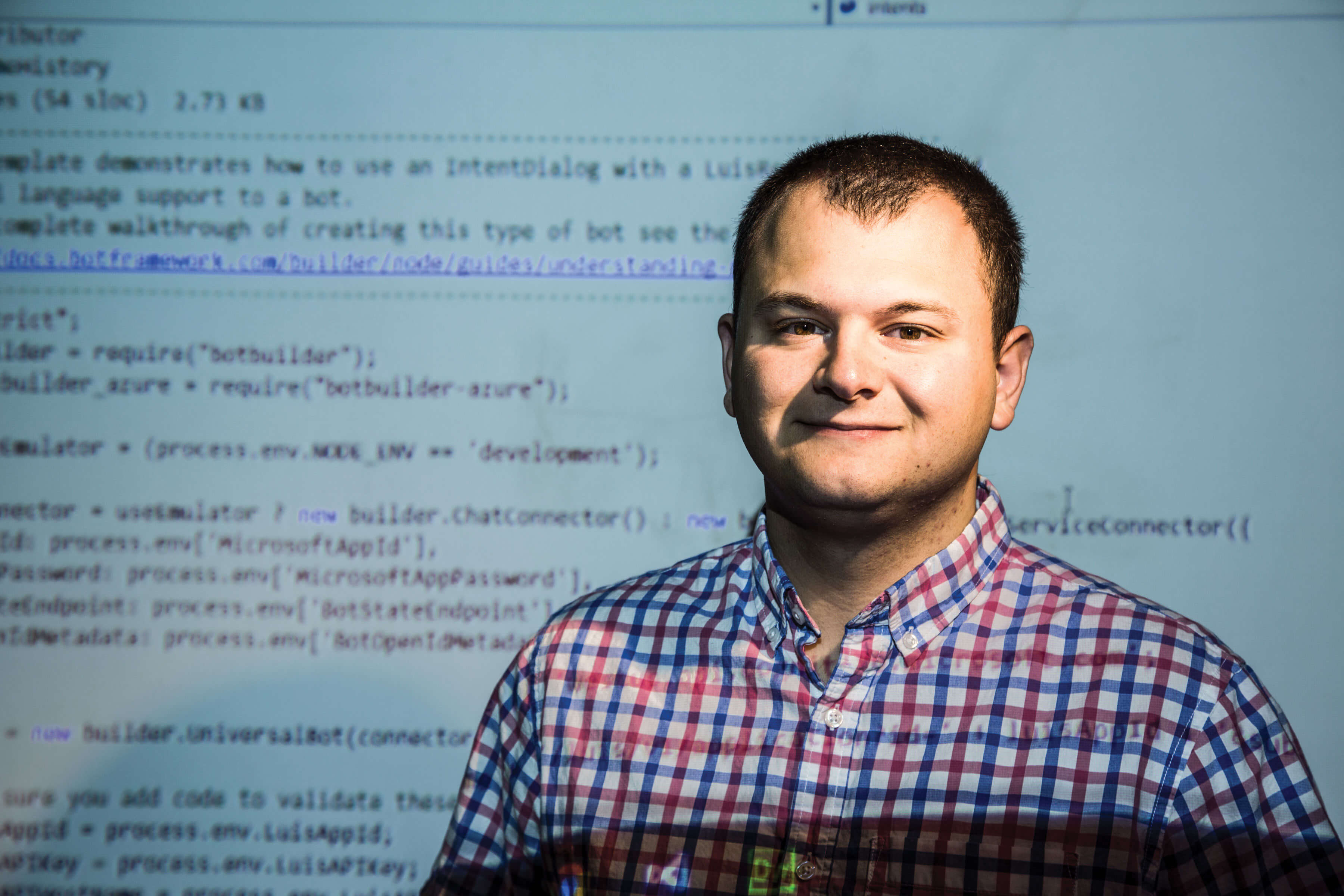
Bot Man
Giuseppe Licata is coding his way to the top, one chatbot at a time.
“I think 2017 is going to be the year of the chatbot,” says Giuseppe Licata, citing the so-called chatbot boom that has been billowing from the tech industry since last year. It’s not surprising to hear that from Licata, given that this May computer science graduate was a key part of the winning team in a chatbot design challenge held on campus in February. What is surprising is his admission that just six months ago, he wasn’t sure what a chatbot was.
Licata can now say with authority that chatbots are computer programs that simulate human conversation by analyzing keywords and phrases to provide automated responses to an end-user’s questions. The technology has been around in some form since the 1960s, but there has been a surge in interest recently, particularly for use in marketing and customer service operations (see sidebar).
That, in part, is what prompted Jeffrey Weinstein ’93M, CEO of RightAnswers, a cloud-based knowledge management software and web self-service solutions provider, to sponsor the design competition for Monmouth students last semester.
“From the university’s perspective,” says Weinstein, “you are able to give students exposure to what product development is really like. And for me, it helped me take the pulse of where the talent is today.”
Student teams had two weeks to develop a chatbot for the industries of their choice. Licata worked with Monmouth M.B.A. students Anthony Vazzana and Nicole Puccio to develop a bot that could answer admissions-related questions. Vazzana and Puccio developed the questions, responses, and business plan, while Licata handled all of the coding. The team’s entry nabbed the $1,500 top prize, but Licata walked away with something more valuable: a job developing chatbot technology for RightAnswers. It was the perfect coda to his undergraduate studies at Monmouth.
“[This] was the first time I had really worked under a deadline for something I had to present that wasn’t school related,” says Licata. “So I think it helped with the aspect of, ‘I’m doing something outside of school … for the real world.”